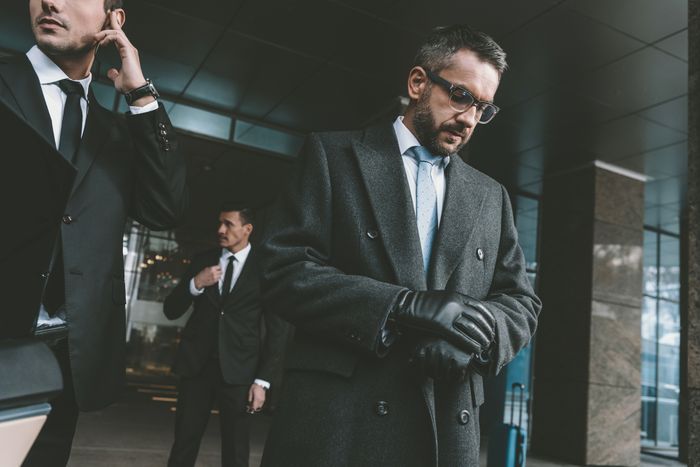
- August 22, 2025
- |security guard company, security guard services
- | 0
Security Guards Authority
Security guards, armed or unarmed, do not possess the same powers that police officers do. However, they are still allowed to a few things that ordinary citizens are not.
Security guards are usually employed by private parties (businesses, individuals) and they enforce whatever rules the employer has set. This includes escorting someone out of the premises if necessary or detaining an offender if the security guard caught them in an act of crime or felony offense.
Security guards have the power to arrest an offender if necessary. That implies that the security guard has caught a person in an act of crime (at the security guard’s jurisdiction) such as stealing something or damaging the property. In that case, the security guard can make a citizen’s arrest and wait for the police to arrive and take over.
A Security Guards Jurisdiction
A security guard has the right to apply the rules that the employer has set but only on the property that they are hired to protect. This is what we refer to as a security guard’s jurisdiction. This means a security guard may ask you to follow certain rules, leave the private property if you behave inappropriately, or make an arrest if you refuse to stop the problematic behavior.
A security guard can deny entry to a building or ask you to leave on behalf of the owner. If you refuse to leave, a security guard is allowed to use reasonable force to remove you from the property.
If a security guard detains you under suspicion that you have shoplifted or damaged property, they are allowed to detain you until the police arrive (as long as this is a reasonable time). A “reasonable time” means that a security guard must not unnecessarily delay calling the police and detain you longer without any reason.
A security guard can ask you to show your ID and can grant or deny entry depending on that (on behalf of the employer). To learn more about security guards and our security guard services, contact us.
FAQ’s About Security Guards Authority
What authority do security guards have on private property?
On private property, XPressGuards officers act as agents of the property owner. They can enforce posted rules, escort trespassers off the premises, detain individuals for law enforcement when a crime has occurred, and issue verbal or written warnings. Their authority is granted by the property owner and state law.
Can security guards make arrests?
Yes, under citizen’s arrest powers. If a guard witnesses a felony or a misdemeanor breach of the peace, they may detain the individual until police arrive. XPressGuards trains every officer on safe, legal detention procedures to protect both the guard and the public.
Do guards have the right to search personal belongings?
Only with consent or when a clear company policy is posted and agreed upon, such as bag checks at stadiums or concerts. Without consent or a posted policy, searches are limited to situations where there is immediate danger or evidence of a crime in plain view.
Are XPressGuards officers allowed to carry weapons?
Yes, where state law permits. Armed guards hold individual firearm permits and complete additional state mandated training. Unarmed guards carry non lethal tools such as flashlights, radios, and in some states, pepper spray or batons. All weapons are carried lawfully and responsibly.
Can guards ask someone to leave public property?
If the area is privately owned but open to the public, such as a shopping mall or office lobby, guards can ask individuals to leave for violating rules or creating a disturbance. Refusal to leave after a lawful request can result in trespass charges.
What happens if a guard uses force?
XPressGuards policy allows only the reasonable force necessary to protect people and property. All uses of force are documented, reviewed by supervisors, and reported to local authorities when required. We maintain strict training standards to minimize force and maximize safety.
Do guards have authority over employees in a workplace?
Guards enforce company policy as directed by management. They may ask employees to follow safety rules, show identification, or leave restricted areas, but ultimate disciplinary action remains with human resources or senior leadership.
Can guards issue tickets or fines?
No. Security guards cannot issue government fines or traffic tickets. They can document violations and forward evidence to law enforcement or property management for further action.
Are guards required to identify themselves?
Yes. XPressGuards officers carry company ID and, when requested, provide their name and supervisor contact information. Uniforms and badges are clearly marked to avoid confusion with law enforcement.
Where can I learn more about guard authority in my state?
Call (866) 407-4342 and speak with an XPressGuards compliance specialist. We will explain the exact legal limits in your jurisdiction and provide written guidelines you can share with your staff or community.


